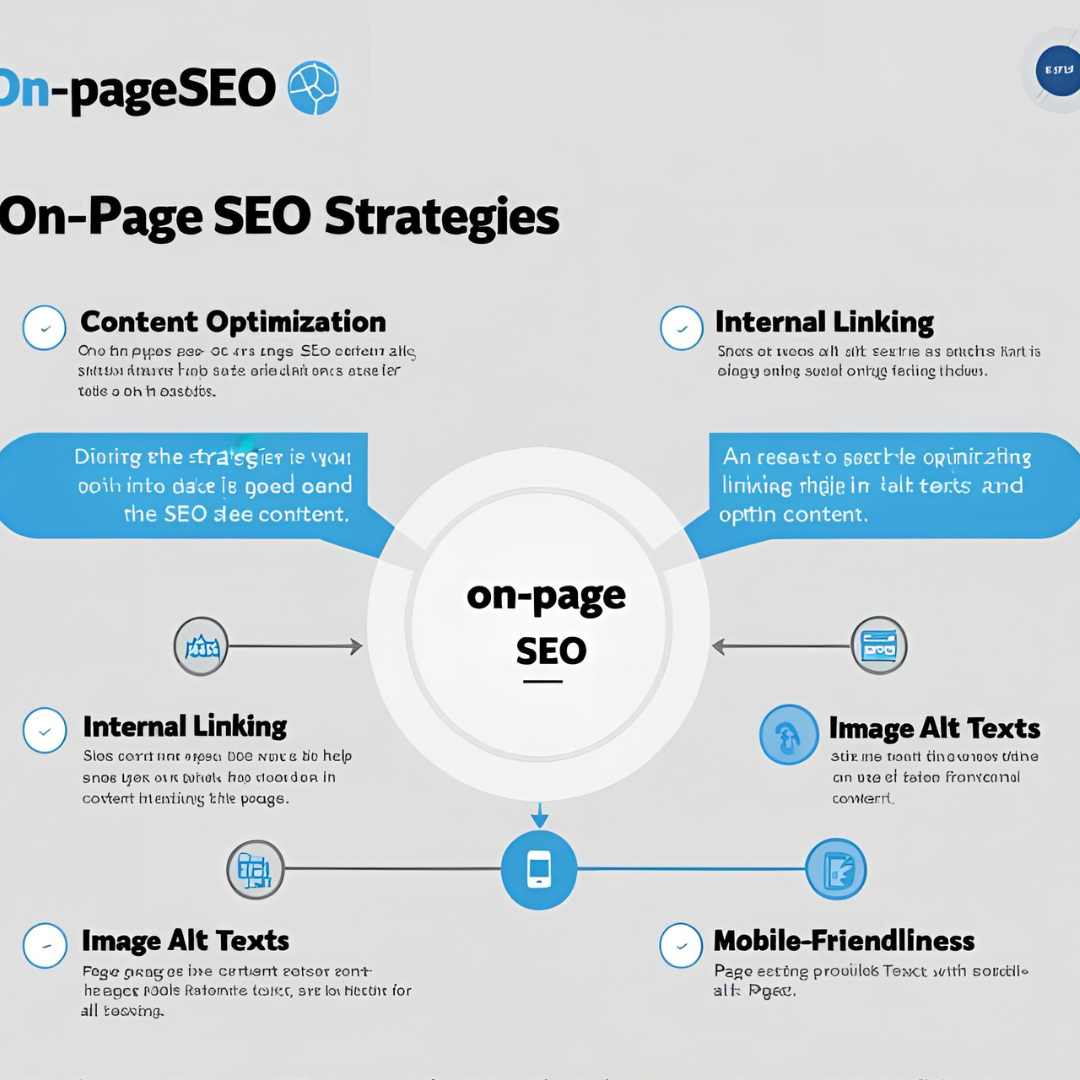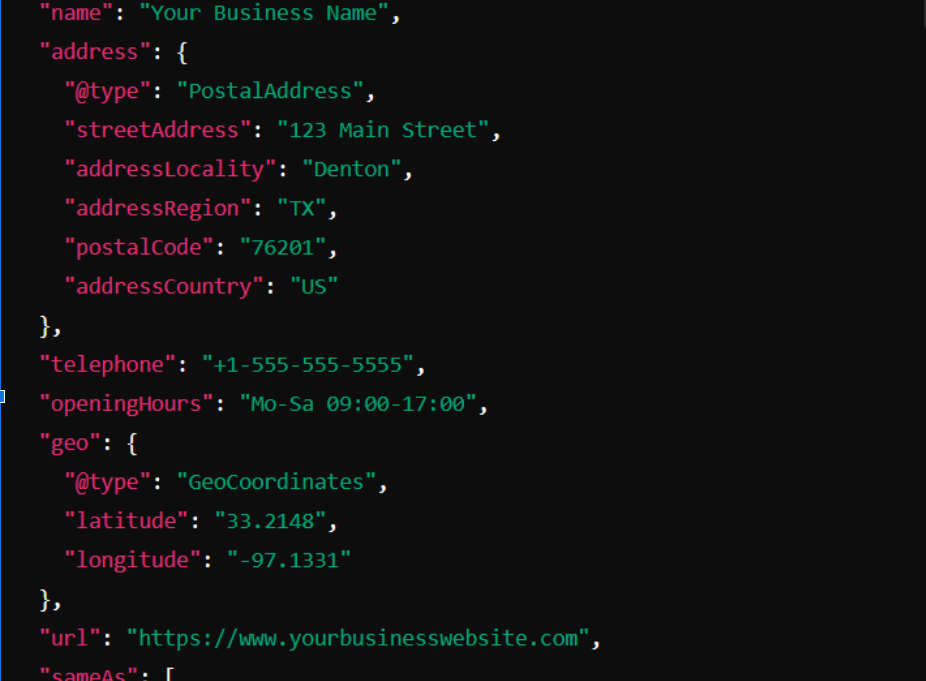On-Page SEO Denton and Off-Page SEO Denton are two essential pillars of effective Denton SEO strategies. If you’re a business in Denton aiming to increase local visibility, understanding how these techniques work together is key.
SEO is crucial for businesses in Denton, as it directly affects how your website ranks in search engine results. However, understanding the differences between on-page and off-page SEO is vital for developing an effective strategy.
In this article, we’ll explore the significance of on-page and off-page SEO for Denton businesses, helping you understand how each one plays a critical role in driving traffic to your website and improving visibility in local search results.
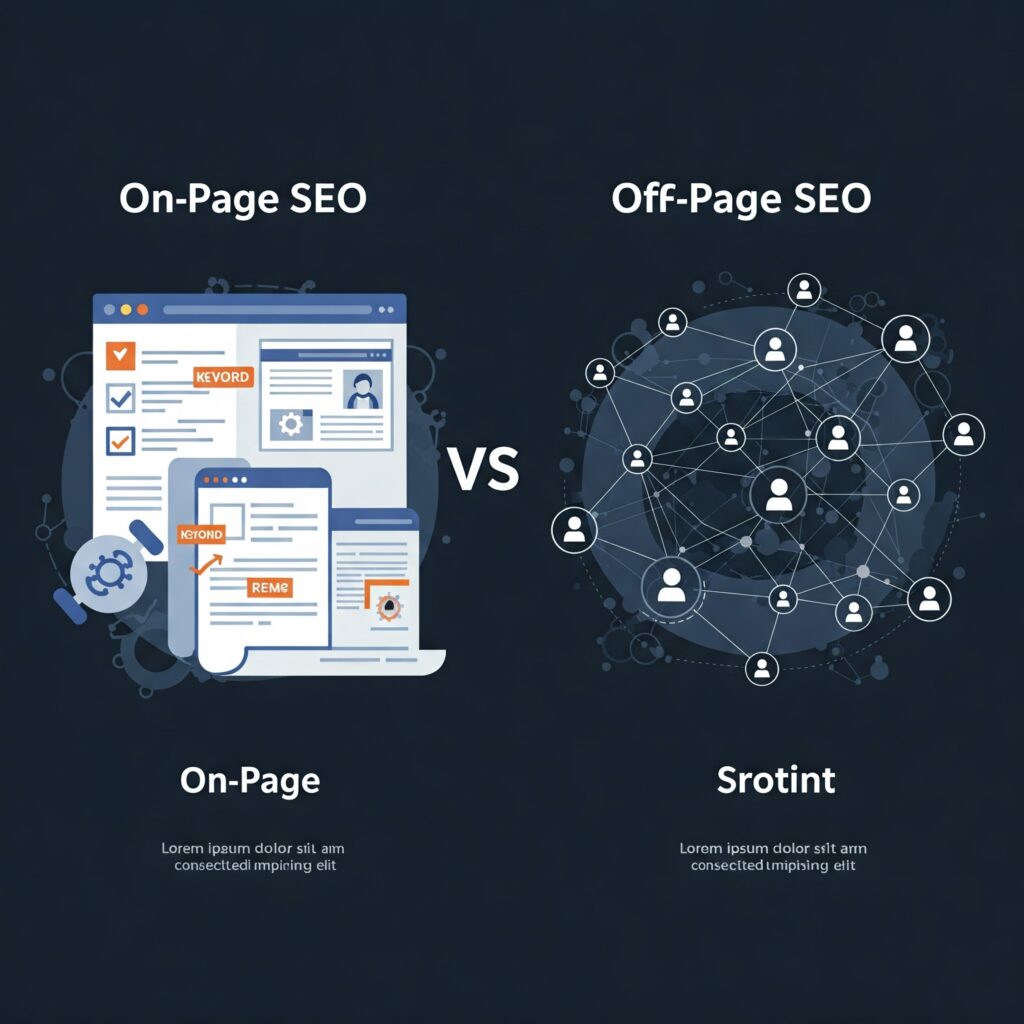
What is On-Page SEO for Denton?
On-page SEO Denton refers to the tactics you can control directly on your website to enhance its ranking in search engine results. This includes elements like meta descriptions, title tags, and header tags, all of which are important for ensuring your site is properly indexed by search engines.
For Denton businesses, focusing on on-page SEO means optimizing content and structure in a way that helps both search engines and visitors understand your offerings. Here are a few key on-page SEO factors to consider:
- Keyword Optimization: Ensuring that your Denton-targeted keywords are incorporated into key areas like headings, meta descriptions, and throughout your content.
- Quality Content: High-quality, relevant content that answers the needs of Denton residents will boost your SEO rankings.
- Internal Linking: Linking to other relevant pages within your website helps improve navigation and boosts SEO.
- Mobile Optimization: Since many users will search for Denton businesses on mobile devices, having a responsive site is crucial.
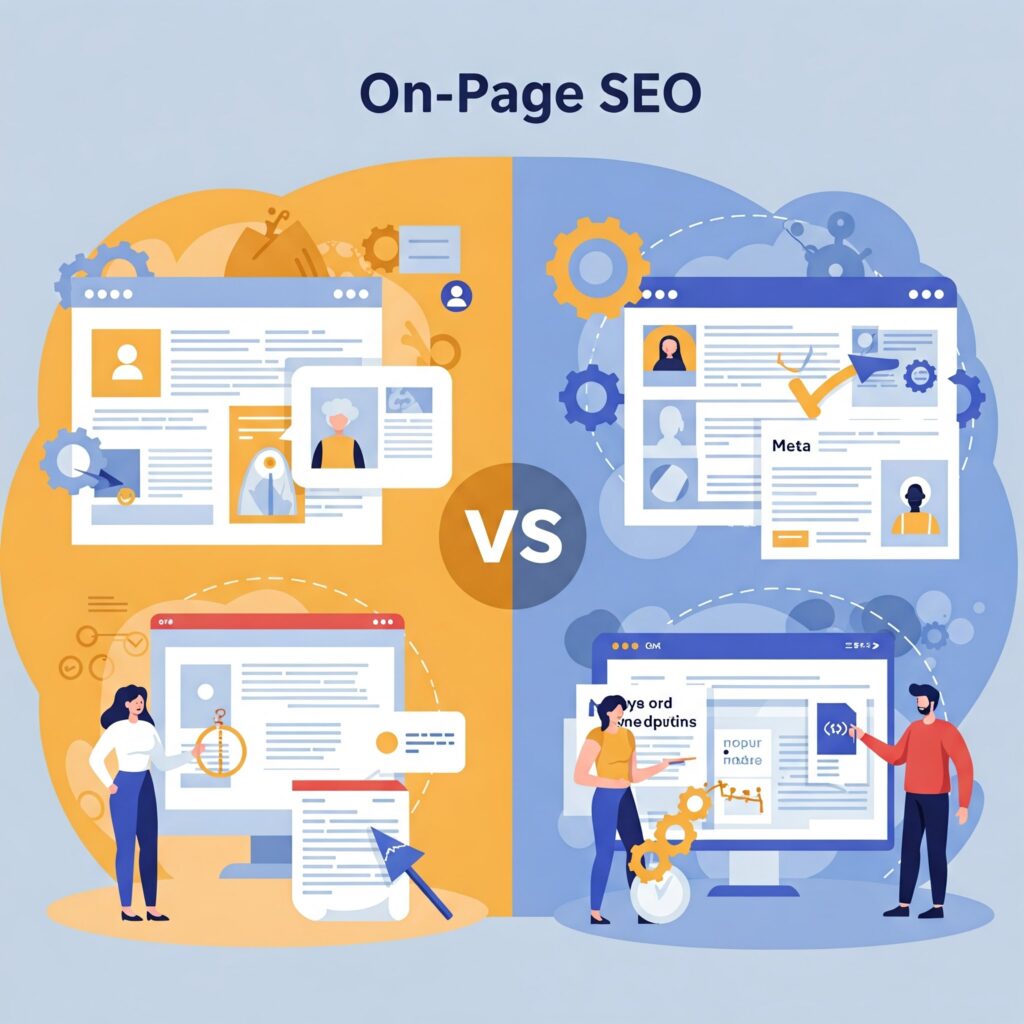
Off-Page SEO: Boosting Your Site’s Authority in Denton
Unlike on-page SEO, off-page SEO focuses on actions taken outside your website to improve its authority and ranking. The main factor here is backlinks, which are links from other websites pointing to your site. Backlinks signal to search engines that your website is trustworthy and authoritative.
For Denton businesses, off-page SEO can include:
- Building High-Quality Backlinks: Gain backlinks from local Denton directories, local newspapers, and relevant local businesses to improve your website’s authority.
- Social Media Engagement: Active social media profiles that link back to your site can improve off-page SEO.
- Local Reviews: Encourage customers to leave reviews on Google and other local platforms, helping to increase your website’s visibility in local search results.
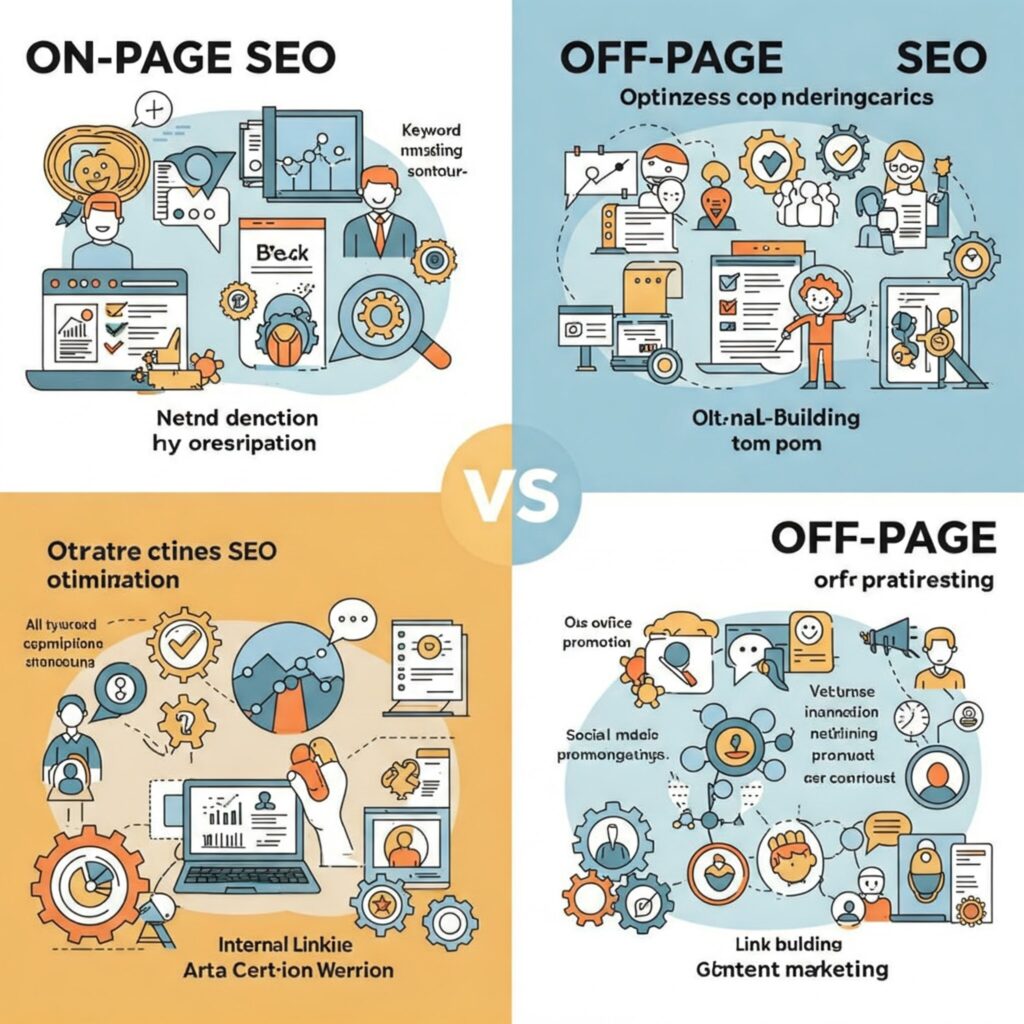
Why On-Page and Off-Page SEO Matter for Denton
Both on-page and off-page SEO are essential to a comprehensive SEO strategy for any business, including those in Denton. On-page SEO ensures your website is optimized for both search engines and users, while off-page SEO helps improve your site’s credibility and authority.
Businesses in Denton should balance both aspects for the best results. Focusing too much on one and neglecting the other can limit your potential to rank well in search engine results.
A balanced SEO strategy is the key to online success for Denton businesses. While on-page SEO helps search engines understand your website and improves user experience, off-page SEO builds your site’s trust and authority in the digital landscape. Together, they create a powerful combination that boosts your rankings, increases traffic, and ensures your business is seen by the right local audience. Ignoring either side can weaken your SEO efforts—so Denton businesses must invest in both for sustained visibility and growth.
For an official look at how search engines evaluate websites, check out Google’s SEO Starter Guide.
Conclusion
For Denton businesses, a balanced approach that incorporates both on-page and off-page SEO strategies is crucial for long-term success in search engine rankings. Start optimizing your website today, and invest in strategies that will boost your authority and visibility within the Denton community.
By implementing the right mix of On-Page SEO Denton and Off-Page SEO Denton techniques, you can unlock the full potential of Denton SEO strategies and position your business for lasting local success.
Explore our specialized Local SEO services to boost your Denton business visibility.
